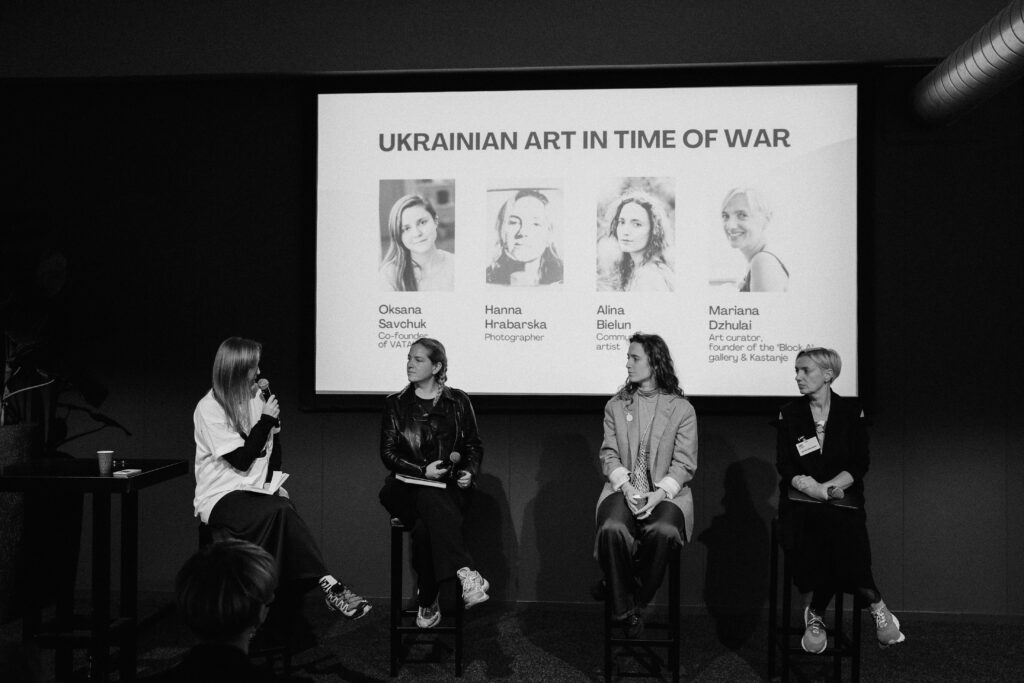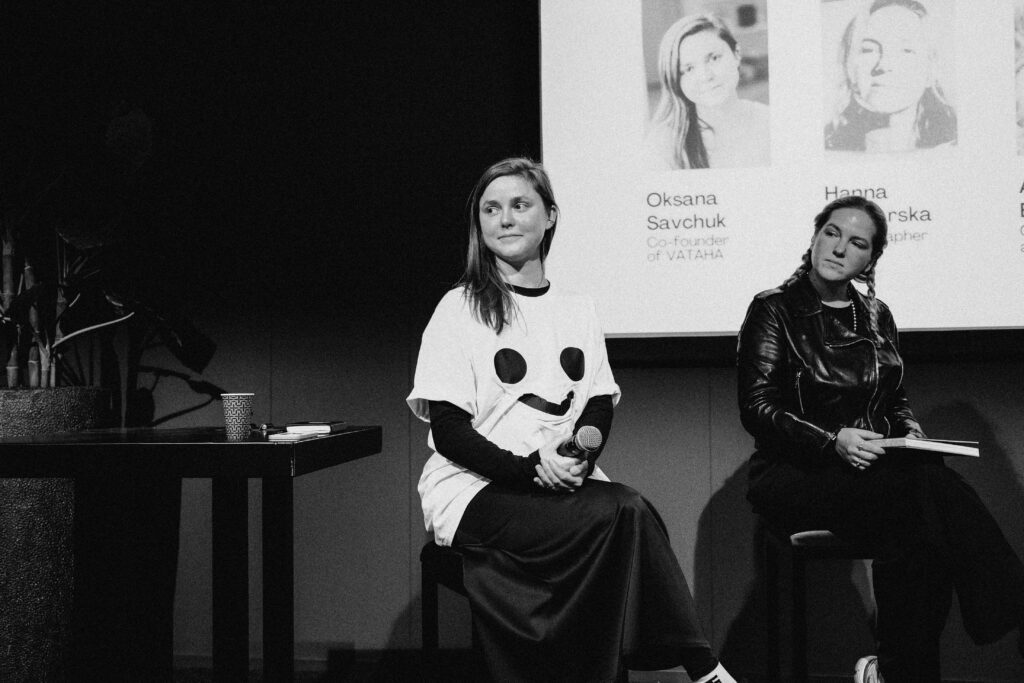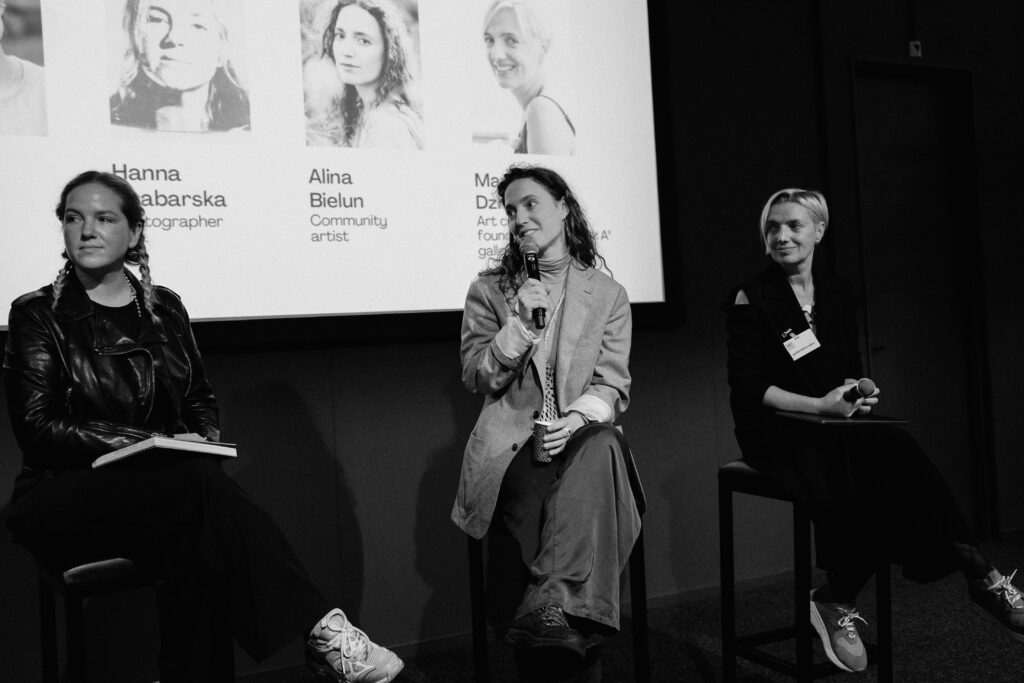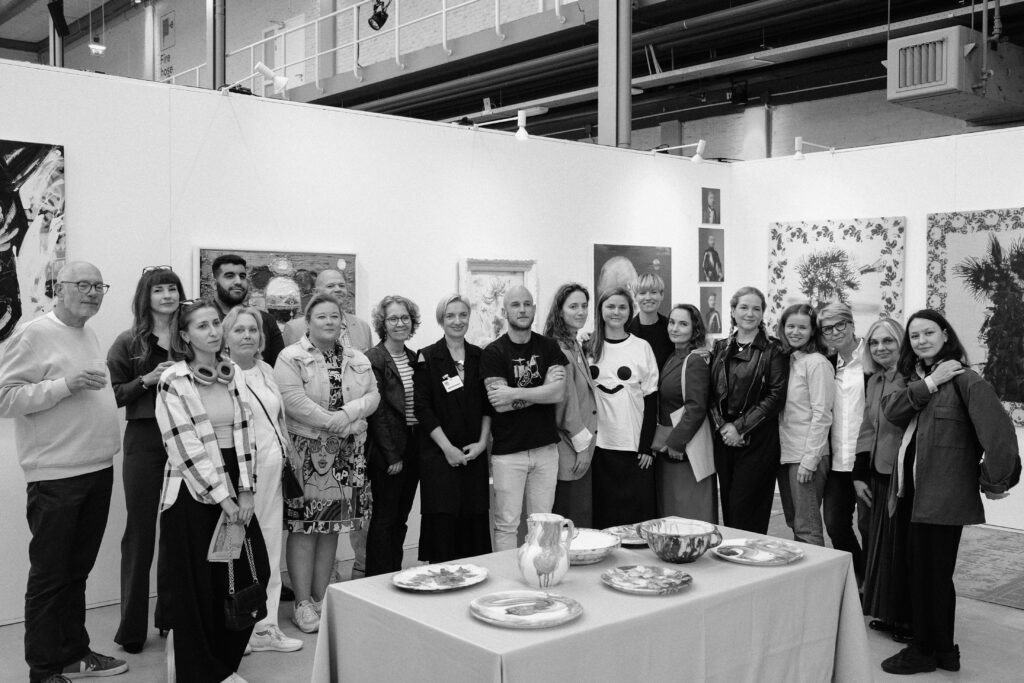What does home mean to each of us right now? Is home a physical space or can it be found from within? Or maybe home belongs to our relatives, and is created over time?
On 4 October, at ART The Hague, our co-founder Oksana Savchuk led a powerful conversation with three Ukrainian artists on how art documents and processes the harrowing realities of war, including displacement and emigration.
Supported by the Embassy of Ukraine, the event successfully highlighted the importance of art in times of crisis, providing a platform for reflection and dialogue. Those in attendance left with a renewed appreciation for the role of art in resilience and solidarity.

To shed light on a complex topic, art curator Mariana Dzhulai discussed the impact of the war on contemporary Ukrainian art and its global presence. Photographer Hanna Hrabarska shared her personal experience with war-stricken emigration, while community artist Alina Bielun divulged her transformation to a community artist in addition to a conceptional artist.
Oksana shares that although each of the speakers hail from a different background, all three highlighted the power artists have in bringing stories to the front. “It was new for the Dutch event attendants to hear these stories through the lens of an artist, but it’s exactly these artists who influence communities and societies with their artwork,” she notes.
First time moderating
Oksana is no stranger to the stage, having spoken at several conferences herself. But this was her first time moderating an event as a representative of VATAHA.
“It was a balancing act,” Oksana underscores. On the one hand, she wanted to go beyond asking the panel guests to list their individual experiences with the horrors of the war.
“Instead I focused on asking them personal questions about their choices, and the changes that happened in their lives,” she maintains.

Art as a source of meaning
Mariana Dzhulai kicked off the discussion with a speech, in which she emphasized how art and culture provide, help people stay grounded and look for distraction. Already since 2014, war experiences have shaped Mariana’s art curation practices, which she has since been exhibiting at European galleries and art fairs, including this event.
With a track record of over 100 curated exhibitions, she has managed multicultural festivals, art fairs, and founded the “Block A” gallery in Kyiv, with her most recent initiative being the Dutch-Ukrainian cultural center “Kastanje.”
Tending to dry roots
Maria Petrochko and Anastasiia Prokofieva, two of VATAHA’s resident graphic designers, were captivated by the discussion. Maria resonated with the metaphor of heritage “roots”, as introduced by Alina Bielun.
“There’s a feeling that our roots are getting dry, and you have to deal with that before begin fully restored again,” says Maria. On stage, Alina Bielun posited that it might be more helpful for displaced Ukrainians to first allow themselves to grieve their lost homes before planting new roots in a new country.
Reassessing the concept of “home” is central to VATAHA’s artivist narrative, with projects such as our Ти де? magazine and our aHOUSEforHOME architecture workshops.

In a new home
For Anastasiia, Hanna Hrabarska’s story resonated deeply. “She talked about how her sense of home changed, that ‘home’ had become an internal sense, independent of locations and places.
“This is very close to me, because I can’t get to the city where I grew up (Donetsk) and where I felt at home, since it is under occupation. So it is more ‘ecological’ to create a sense of home near you, where you are now,” says Anastasiia.
Anastasiia thematized coping with loss and grief in her own art exhibition “Fragments of Resilience” at Run for Ukraine 2024, having specifically imported clay from her home region for her ceramic artworks.
“Most of all, I was interested in the topic of how the art practice of artists has changed since the beginning of the full-scale invasion. It was interesting to compare with my own experience. I was especially interested in the observation that many Ukrainians began to make art only after the start of the full-scale invasion. In hard times, art helps people deal with pain, fear, and uncertainty. Maybe this way, they feel more in control during difficult times by turning their emotions into creation,” she highlights.
Reception of the event
Some of VATAHA’s smaller events still attract a proportionate crowd, which creates an intimate safe space not only for the panel speakers but also for the audience. One event participant shared they were particularly impressed with how resilient Ukrainians are in transforming their traumas into new projects and new growth.

This event was supported by the Embassy of Ukraine and ART The Hague. Follow our Instagram page @vataha.nl to stay updated on our latest events.